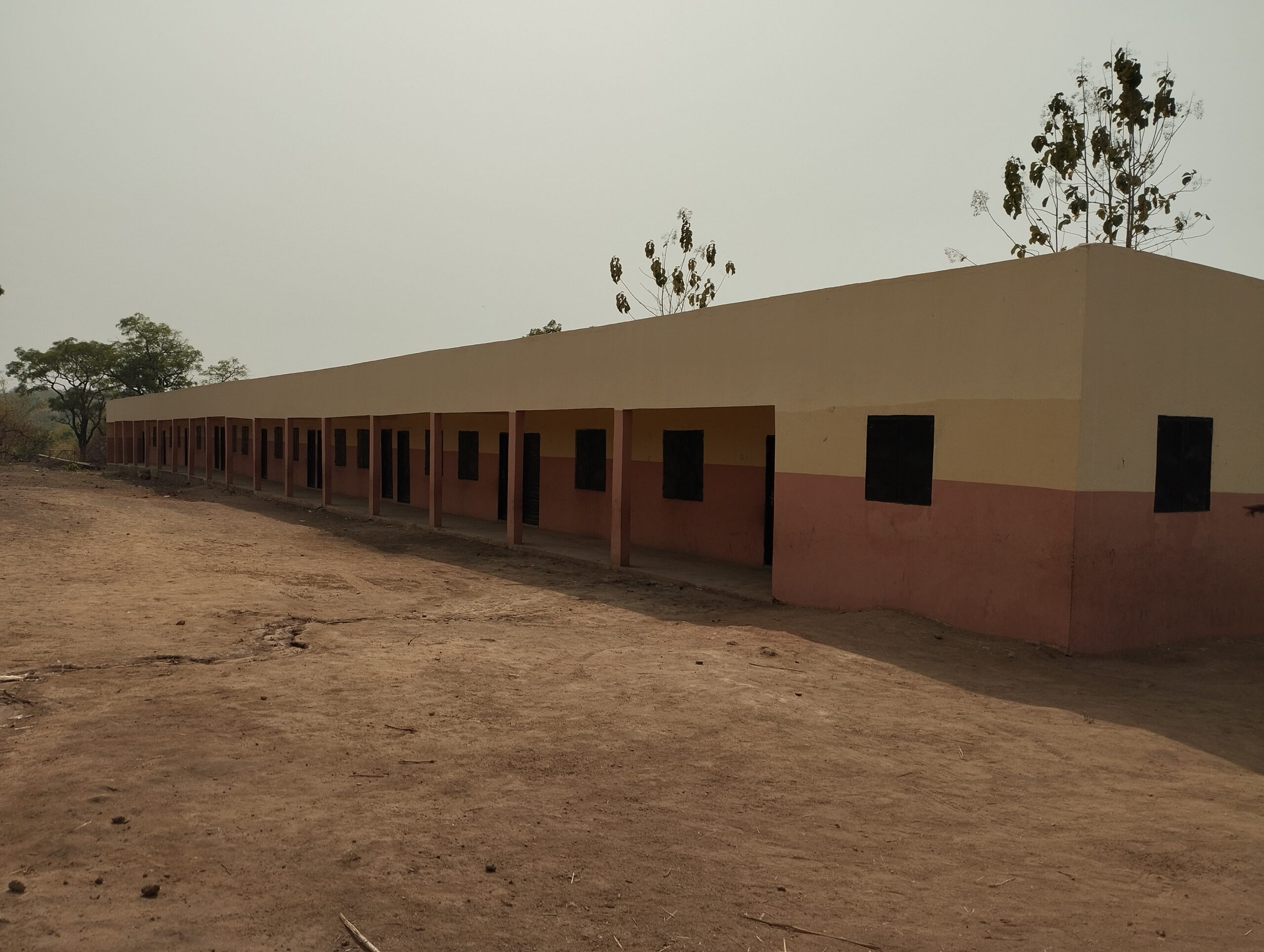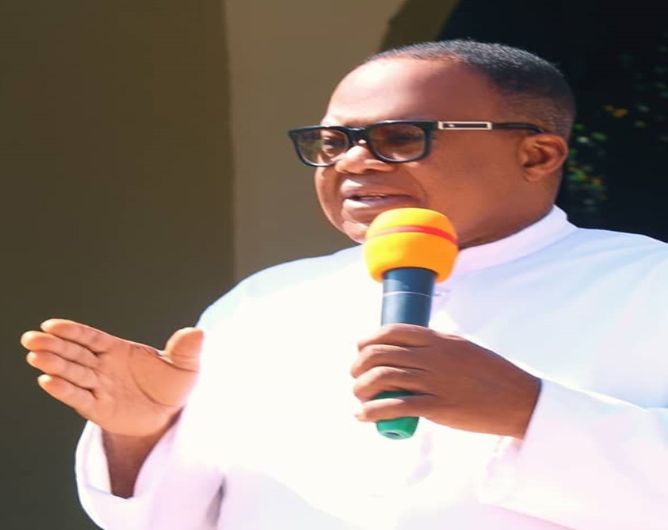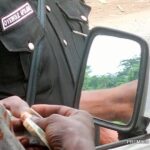By Archibong Jeremiah
As she fled the scourge of armed conflict in her hometown of Cameroon to seek refuge in neighbouring Nigeria, Eseh Shantal worried about how her children would get a good education in a foreign country.
The Anglophone crisis that forced Shantal to flee her country has dragged on since 2016. Separatists from Cameroon’s English-speaking North West and South West regions are fighting government troops. They are seeking a breakaway country—Ambazonia—after claiming marginalisation from the central government led by Paul Biya from the majority French-speaking side. Over 6,000 people have been killed and nearly 600,000 displaced.
Since Shantal and her four children arrived in Nigeria in 2018, they have been cooped up in a refugee settlement in Adagom 3, a rural community in Ogoja Local Government Area of southern Nigeria’s Cross River State.
Contrary to her fears, since 2023, Shantal’s children have been receiving what she describes as free and satisfactory education at the John Bosco Academy, a primary school within the refugee settlement. This is thanks to the efforts of a Catholic priest, Father Peter Obele Abue.
Abue, who had been a priest for close to 40 years and currently serves as the parish priest of Holy Family Church in Cross River’s Ikom town, traces his motivation to support the education of poor kids to his personal childhood experience in Idun Mbube village in Cross River.
“I grew up in a very impoverished environment, and education was rare. Only a few people had that opportunity, and I was one of those privileged to progress in my education from primary to secondary school to the university,” he recalled. “I was able to have these opportunities because I had parents who were educated and afforded me that opportunity.”
Abue holds a doctorate in international development from Cornell University, New York. With a zeal to contribute to closing the prevailing education gap in Cross River, after his doctorate, Abue returned to Nigeria and launched the Children of Rural Africa or COR Africa in 2006.
Its aim is to fight poverty with educational and healthcare provision and economic empowerment. It builds tuition free and highly subsidised schools for elementary and secondary schools for underprivileged kids.
Named after Saint John Bosco, a 19th-century Italian priest and educator, the John Bosco Academy, where Shantal’s four kids have been schooled since September 2023, is one of five schools the nonprofit has established in central and northern Cross River rural communities. Of the five, three are primary schools and two are secondary. Abue names all of these schools after Catholic figures.
“When I came from Cameroon, I didn’t know I would have the opportunity to have a free school that our children can attend,” Shantal said.

Similarly, Ebi Mowang, a farmer in his late forties and a member of Emangebe community in Ikom town, grew increasingly worried about the soaring cost of his children’s schooling and the distance they had to cover trekking to a neighbouring community to access cost-effective school.
“We were taking our children to very far places to school, and some schools would come in the morning, loading them [students] into the school bus like they were animals. We were helpless,” he recalled, until John Stilley primary school was established in the community.
Poor spending hinders access and quality
UNICEF has warned that Nigeria could be hurtling towards an education crisis due to the government’s meagre support for education. Contrary to UNESCO’s 15-20% benchmark, Nigeria’s budgetary allocation for education in 2024 is 6.34%, down from 7.2% and 8.2% in 2022 and 2023, respectively.
In far-flung communities where CORE Africa’s schools operate, access to quality and cost-friendly education could be a near miracle. But while the John Bosco Academy is completely free to attend, COR Africa accepts very subsidised fees per term at its other four schools. This allows the schools to raise funds for basic operations in addition to other funding models like donations.
Commercial schools in most local communities in central and northern Cross River charge between N12,000 and N21,000 per four-month school term, a heavy cost for the mostly poor rural settlers. COR Africa’s subsidised schools charge between N3,500 and N6,000. Collectively, the schools educate about 1,000 children every year.
Though the nonprofit focuses on basic and secondary education, it recognises the pivotal role of university education in youth employment. So every year, it supports up to 20 university students with cash ranging from N20,000 to N50,000 per student, said Elijah Ugani, its programme manager.
Not only education
While most of its programmes centre on educational support, COR Africa also has health and economic empowerment initiatives. In 2009, Father Abue began building the Augustina Abue Memorial Hospital in his hometown, Ogoja. Commissioned in 2011, the 10-ward health facility is managed by the Catholic church. It provides primary health services, sometimes free and sometimes with a 50% discount, according to the type of illness.
Additionally, “We trained refugees in agriculture, soap, and shoe making,” said Ugani, the programmes manager. At least 500 people have benefited from its economic empowerment efforts, including farmers equipped with farming skills, seedlings and other farming materials.

John Stilley, a mining professional Abue met while in the US, is one of the nonprofit’s biggest financial supporters. To honour him, Father Abue named a primary and secondary school in Ikom after John Stilley in 2017 and 2023, respectively.
Yet COR Africa grapples with sustainable funding, forcing the foundation to scale back some of its programmes.
“Finance is the greatest challenge,” said Ugani. “We have done livelihood training for them (refugees), acquired land, and used over N3 million to procure seedlings, got a tractor to plough the land, shared it among the refugees, and gave them the seedlings, fertiliser, and insecticide in 2020 and 2021. [But] we cannot continue because of the paucity of funds.”
He said the organisation is hoping to secure a partnership with UNHCR to support community members and over 50,000 refugees who escaped violence in Cameroon to Nigeria.
Abue’s humanitarian efforts beyond the church are sometimes perceived as ambitious and operating outside Catholic norms, which has cramped some of his organization’s initiatives. Next to this are hostilities from youths in beneficiary communities.
“Some people, like in Adagom 3, feel there is plenty of money and should be shared with them. When we commenced the construction of the secondary school block, the day the bulldozer was to clear the site, the youths blocked the road. They said we must pay them for entrance from the highway to the school compound, and we paid over N100,000,” Ugani said.
“When we brought [bags of] cement, they blocked it too. The majority of them don’t understand that it is for the development of their community.”
As COR Africa struggles to overcome its challenges, Shantal prays daily that the nonprofit gets all the support it needs to sustain its programmes so her kids can stay in school.
“I’m so happy to know I have a free school for my children to attend. Them not being in school worried me a lot because I didn’t know how I would pay their fees and provide other needs,” she said.
This story was supported by the Centre for Religion and Civic Culture at the University of Southern California through its global project on engaged spirituality.
The article outlines the journey of Eseh Shantal, who fled the armed conflict in Cameroon and sought refuge in Nigeria with her children. Their arrival in 2018 coincided with Shantal’s concern about her children’s education, which was addressed by Father Peter Obele Abue, a Catholic priest. Abue, motivated by his impoverished childhood, has extensive educational and developmental initiatives through his nonprofit, Children of Rural Africa (COR Africa), founded in 2006.
Abue, who has a doctorate in international development from Cornell University, established John Bosco Academy within the refugee settlement, providing free education to Shantal's children since 2023. COR Africa operates five schools in Cross River, Nigeria, offering low-cost or free education, combating poverty and supporting over 1,000 children annually. They also assist university students and initiate health and economic empowerment projects, such as the Augustina Abue Memorial Hospital and vocational training programs.
The article also highlights the challenges COR Africa faces, including insufficient governmental support for education in Nigeria, financial constraints, and hostilities from local communities. Despite these hurdles, COR Africa continues to strive for sustainable partnerships to support its educational and developmental missions, emphasizing the importance of sustained support for refugees like Shantal's family.






